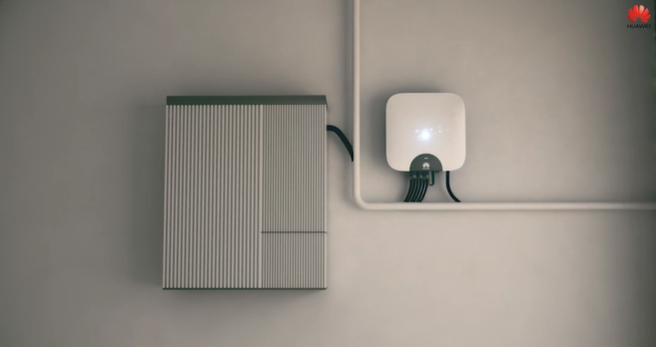In recent months, there has been a growing demand for domestic battery storage systems. This increased demand, currently seen mainly in Flanders, coincides with the end of the reverse meter system in this region and the introduction of a regional subsidy for battery installation. What makes a home battery so interesting for consumers? Is it advantageous in every region?
.
WHAT IS THE ROLE OF A DOMESTIC BATTERY?
A battery allows you to use the energy produced by your panels flexibly over time.
.
WHY INSTALL A HOME BATTERY?
It's a good idea to install a battery if the energy produced by the photovoltaic panels is not going to be consumed directly when it's produced. It's possible that your consumption timing doesn't coincide with the period during which your photovoltaic system produces energy. Example: your panels produce a lot at midday on a sunny day, but nobody's home, so you tend to run your electrical appliances in the evening when you're at home. A battery allows you to make up for this by storing electricity during the day and redistributing it to you as you need it.
The benefits of battery storage therefore depend on the level of self-consumption. Indeed, a household that would run all its electrical appliances during the day (when the panels are producing) would have a smaller advantage in installing a battery than a household that would mainly consume in the evening (when the panels are not producing) and whose surplus energy would be fed back into the grid. Since feeding energy back into the grid is proportionally less profitable than self-consumption of the energy produced a battery (which, via energy storage, can consume up to 80% of the energy produced by the panels) will therefore be more advantageous. What's more, in the event of a power failure, your appliances will continue to be supplied with electricity thanks to the energy stored in the battery.
.
BENEFITS BY REGION
FLEMISH REGION
This is the region where the installation of a domestic battery is currently the most financially attractive. Since January1, 2021, Flanders has switched to a real tariff system for photovoltaics, abandoning the reverse meter system.
This means that the surplus electricity produced is now fed back into the grid without being "subtracted" from your electricity bill. This electricity is fed into the grid and sold back to your supplier at a rate of around 3.5 to 4 cents/kWh. Installing a battery enables this energy to be stored for self-consumption at times of the day when the panels are no longer producing. Instead of selling your electricity at a low price, you save money by not buying it from your supplier. Installing a battery means you can get more value out of your photovoltaic production, because 1 kWh saved is worth more than 1 kWh sold.
What's more, Flanders offers a bonus of up to €2550 for the purchase of a battery. Note, however, that the amount of this bonus will gradually decrease each year. The photovoltaic pricing mechanism combined with the premium therefore makes the Flemish region the most eligible for the installation of a battery, as it increases the economic yield of a photovoltaic installation.
BRUSSELS REGION
The Brussels region is subject to the same pricing conditions as Flanders, with the difference that there is currently no premium for financing a domestic battery.
As a reminder, in Brussels, private individuals who have installed solar panels receive green certificates . The mechanism for awarding these certificates is not affected by whether or not a battery is installed.
WALLOON REGION
In the Walloon region, the reverse meter system is still in force. In other words, what you consume in energy will be added to your electricity bill, and what you produce will be subtracted, even if you continue to use the grid at times when the panels stop producing. So, for the time being, there's no financial incentive to install a storage battery. If your installer has done his job properly, the number of panels will be dimensioned to offer production as close as possible to your annual consumption.
PRICES
Depending on the storage capacity required, a battery currently costs between €4,000 and €10,000 (source: l'Echo). A price that is sure to fall over the next few years.
If you already want to install solar panels and wait before installing a battery, you can opt for an inverter compatible with the future installation of a battery. We work with the Huawei brand and its inverters SUN2000 .
.
If you would like to find out more about our offers for a domestic battery, please do not hesitate to request a quote only valid when photovoltaic panels are installed.

